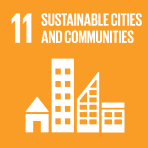Abstract
This policy brief reviews the socio-economic impacts of the COVID-19 crisis in Africa and presents the continent’s social protection responses. The crisis has hit the poorest and most vulnerable hardest and laid bare structural shortcomings such as inadequate health, educational and technological infrastructure, limited social protection, gender inequality, large informal economies, lack of access to basic services, constrained fiscal policy space and a high risk of debt distress in many countries, making them particularly vulnerable to the lasting effects of the pandemic. African countries have realized the need to scale-up social protection programmes and measures to meet the challenges brought about by the COVID-19 crisis as well as to ensure preparedness for other unexpected future events. Thus, they have introduced or adapted over 200 social protection and labour market policies in response to the pandemic. Recognizing the ongoing efforts as well as the persistent gaps and challenges, the brief stresses the need for allocating adequate resources for social protection systems and programmes, aiming for universal coverage to adequately address the different risks and vulnerabilities that individuals face throughout the lifecycle. It also urges development partners to provide financing support to the poorest countries to help them create fiscal space for increased public spending for social protection that is sustainable and equitable through multilateral development co-operation as well as national and regional multi-sectoral partnerships.
- 24 juin 2021




